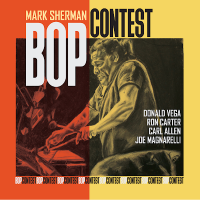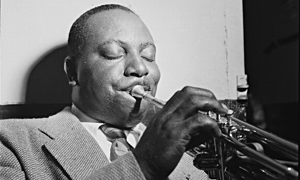Home » Jazz Articles » Book Review » The Edge Effect: Treating Memory Disorders With Music
The Edge Effect: Treating Memory Disorders With Music
 Eric Braverman MD in this just released book The Edge Effect (Sterling) believes that "singing or playing an instrument yourself is an active way in which you can increase GABA."
Eric Braverman MD in this just released book The Edge Effect (Sterling) believes that "singing or playing an instrument yourself is an active way in which you can increase GABA."
Dr. Braverman, also the force behind creating The Place for Achieving Total Health (PATH Medical in NYC and Penndel, PA) describes the biochemical GABA (gamma-aminobutyric acid) as having "a calming stabilizing effect on the brain" that "prevents us from being to 'juiced', too quick, and therefore ineffective." Other "natures" as he calls them, are "Powerful Dopamine", "Creative Acetylcholine" and "Playful Serotonin".
Listening to Eric Braverman's explain his "Head-First Medicine" approach sounds like the revolution medicine needs is here as does his extending the concept of menopause to the entire body by naming how the brain ages as "pauses": "Electropause (slowing of brainwave activity), Biopause, Pituitarypause, Sensorypause" or "Psychopause (changes in mood) and how the body ages as: "Thyropause, Thymopause, Cardiopause, Vasculopause, Pulmonopause, Adrenipause, Somatopause, Osteopause" and "Dermopause".
The complete program that explains how the brain controls the body's functions and how you can adjust and even augment its capabilities he's titled the "Edge Effect". First identify your own brain-dominant nature with the Braverman Nature Assessment (pages of multiple choice True or False questions), address your differences, focus on making the most of your primary nature then use the "Edge Effect" to experience higher performance - all in 270 pages!
Actor Ben Vereen is quoted on the back cover suggesting, "Everyone with a brain must buy this book."
Tags
PREVIOUS / NEXT
Support All About Jazz
 All About Jazz has been a pillar of jazz since 1995, championing it as an art form and, more importantly, supporting the musicians who make it. Our enduring commitment has made "AAJ" one of the most culturally important websites of its kind, read by hundreds of thousands of fans, musicians and industry figures every month.
All About Jazz has been a pillar of jazz since 1995, championing it as an art form and, more importantly, supporting the musicians who make it. Our enduring commitment has made "AAJ" one of the most culturally important websites of its kind, read by hundreds of thousands of fans, musicians and industry figures every month.






















